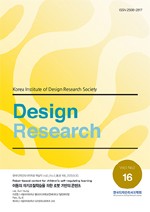- 영문명
- Developing a Lifecycle Framework for Textile Design Education
- 발행기관
- 한국디자인리서치학회
- 저자명
- 장재익(Jae Ick Jang)
- 간행물 정보
- 『한국디자인리서치』Vol10, No. 3(통권 36권), 697~710쪽, 전체 14쪽
- 주제분류
- 예술체육 > 미술
- 파일형태
- 발행일자
- 2025.09.30

국문 초록
본 연구는 환경 위기의 주요 원인으로 지목되는 텍스타일 산업의 구조적 문제를 해결하기 위한 근본적인 대안으로서 교육 역할을 탐색한다. 현재 텍스타일 산업은 전 세계 탄소 배출량의 약 8~10%를 차지하며, 매년 9,200만 톤 이상의 막대한 직물 폐기물을 발생시키는 등 과도한 자원 소비와 환경 오염 문제로 지속가능성에 대한 비판에 직면해 있다. 특히 염색 및 가공 공정에서 발생하는 유독성 화학물질과 합성섬유에서 배출되는 미세 플라스틱은 생태계를 심각하게 위협하고 있다. 이러한 위기 극복을 위해서는 디자이너의 역할이 단순한 조형 전문가를 넘어서 시스템 관리자이자 윤리적 실천가로 재정립되어야 하며 이는 교육 패러다임의 혁신을 통해서 가능하다. 그러나 기존의 지속가능성 교육은 단편적인 교과목 개설이나 소재 중심의 접근에 머물러 디자이너의 가치관과 디자인 철학을 근본적으로 변화시키는 데 한계를 보여왔다. 본 연구는 이러한 문제를 극복하고자 문헌 고찰과 사례 분석이라는 질적 연구 방법론을 통해 지속가능한 텍스타일 디자이너 양성을 위한 통합적 교육 프레임워크를 구축하고자 한다. 선행 사례 분석을 통해 교육의 목표가 단순한 지식 전달을 넘어 시스템적 사고와 윤리적 책임감을 함양하는 데 있음을 규명고자 하였다. 또한, '생태적 감수성 형성기', '비판적 사고 배양기', '창의적 전문성 심화기', '자기주도적 혁신 확산기'로 이어지는 4단계의 '전 생애주기 텍스타일디자인 교육 프레임워크'를 최종적으로 제안한다. 본 프레임워크는 각 단계별 핵심 역량, 교육학적 원리, 구체적 교육과정 및 평가를 포함하며 미래의 텍스타일 디자이너가 환경 및 사회 문제 해결을 주도하는 변화의 주체로 성장하는 데 필요한 교육적 토대를 제공하는 것을 궁극적인 목적으로 한다.
영문 초록
This study explores the role of education as a fundamental solution to the structural problems of the textile industry, a major contributor to the environmental crisis. Currently, the textile industry faces significant criticism for its lack of sustainability, as it accounts for 8-10% of global carbon emissions and generates over 92 million tons of textile waste annually due to excessive resource consumption and environmental pollution. In particular, toxic chemicals from dyeing and finishing processes and microplastics shed from synthetic fibers severely threaten ecosystems. To overcome this crisis, the designer's role must be redefined—moving beyond being a mere aesthetic expert to becoming a systems manager and an ethical practitioner, a transformation made possible through innovation in the educational paradigm. However, existing sustainability education has shown limitations in fundamentally transforming designers' values and philosophies, as it is often confined to fragmented courses or a material-focused approach. To address these challenges, this study aims to construct an integrated educational framework for nurturing sustainable textile designers through a qualitative research methodology that includes a literature review and case studies. The analysis of pioneering cases reveals that the goal of education must extend beyond mere knowledge transmission to cultivate systemic thinking and ethical responsibility. Furthermore, this study ultimately proposes a four-stage “Lifecycle Textile Design Education Framework” consisting of: (1) Forming Ecological Sensitivity, (2) Cultivating Critical Thinking, (3) Deepening Creative Expertise, and (4) Promoting Self-Directed Innovation. This framework includes core competencies, pedagogical principles, specific curricula, and assessment for each stage, with the ultimate purpose of providing the educational foundation necessary for future textile designers to grow into Agents of Change who can lead the resolution of environmental and social problems.
목차
1. 서론
2. 이론적 배경
3. 지속가능성 교육의 다각적 실천 사례
4. 전 생애주기 텍스타일디자인 교육 프레임워크
5. 결론
참고문헌
해당간행물 수록 논문
참고문헌
최근 이용한 논문
교보eBook 첫 방문을 환영 합니다!

신규가입 혜택 지급이 완료 되었습니다.
바로 사용 가능한 교보e캐시 1,000원 (유효기간 7일)
지금 바로 교보eBook의 다양한 콘텐츠를 이용해 보세요!



